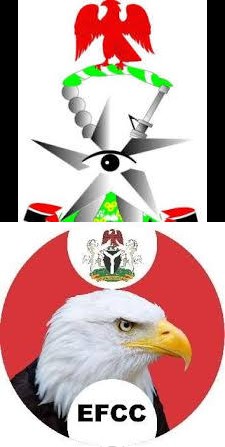Business communities into the import and export businesses have been urged not to view trade compliance and adherence to legal tax laws regulations as burden, but a strategic advantage.
The business community, during a One – Day Sensitization Workshop on enhancing trade compliance and adherence to legal tax laws regulations: The Critical role of law enforcement and Chamber of Commerce, were reminded that compliance builds corporate integrity, enhances brand reputation, and guarantees the long-term sustainability of one’s enterprises.
The joint workshop was organized by the Zonal Directorate of Economic and Financial Crimes Commission (EFCC) Kano, Nigeria Customs Service, Kano/Jigawa Command and the Chamber of Commerce Industry Mines and Agriculture, Kano State.
According to the Acting Zonal Director EFCC, DCE Sa’ad Hanafi Sa’ad, the joint workshop stands as a powerful testament to their shared resolve to foster a more transparent, compliant, and prosperous economic environment in Kano and Nigeria at large.
He said, The Critical Role of Law Enforcement Agencies, and Chamber of Commerce in Trade Facilitation and Enforcing Legal Tax Regulations,” is not merely a topic for discussion; it is a call to action.
“Kano, the commercial nerve centre of Northern Nigeria, thrives on trade. However, the full potential of this vibrant commerce can only be unlocked in an ecosystem built on integrity, rule of law, and a seamless adherence to regulations”, he added.
Sa’ad, further stated that although his Commission and other sister agencies are often known for enforcement which is a core part of their mandate, their ultimate goal is prevention.
“We are here to protect the integrity of our financial system, safeguard our economy from the scourge of illicit financial flows, trade malpractices, and ensure that every citizen and corporate entity fulfils their legal obligations, including tax payments.
Hanafi, described tax evasion, submission of false declarations, and other financial malpractices as not just illegal; but a disservice to the nation, robbing it of the resources needed for critical infrastructure and social services.
He warned that the EFCC, in collaboration with sister agencies, is increasingly deploying intelligence and technology to track and disrupt these sophisticated schemes.
The Assistant Controller General of Customs in-charge of Zone B, Nsikan Patric Umoh, stated that the event provides platforms to deepening collaboration among stakeholders indispensable to the realization of the national objectives and economic development.
She added that, the workshop also aimed to address unethical practices and their negative consequences in the day to day operations.
Umoh, said the event is in line with President Bola Ahmed Tinubu Renewed Hope Agenda geared towards sustainable economic prosperity for all and also, the platform re-enforces the 3 points agenda of the Controller General of Customs, Bashir Adewale Adeniyi MFR, Chairperson WCO Council in the areas of; innovation, collaboration and consolidation.
“It is pertinent to put on record, that under this pillars, the NCS has deployed cutting Edge technologies such as Al and Data Analytics for Advance Risk assessments of edges in the Integrated Mgt system B-Odogwu and has introduced several trade facilitation tools such AEO (Authorized Economic Operaters) Advance Rulings, TRS (Tine release studies), Excise payment System. Overtime Cargo Clearance system and Oss-sup within its two years tenure, to promote predictability, transparency and efficiency of the Clearance and other custom business processes”.
She affirmed commitment to sustain collaboration and support of OPA, stakeholders and the business communities with the NCS to encourage networking, intelligence sharing, compliance and synergy that is beneficial to all.
Papers presented at the event are; The Roles of NCS in export clearance procedures in Nigeria by DC. AH Duku, Roles of NCS in import clearance procedures in Nigeria by AC MM Bandiya.
Other papers presented were; Role of Chamber of Commerce in Enhancing Commerce, Combating Trade-Based Money Laundering and Consequences of Non-compliance with Tax Regulations, followed by a question and answer session.

